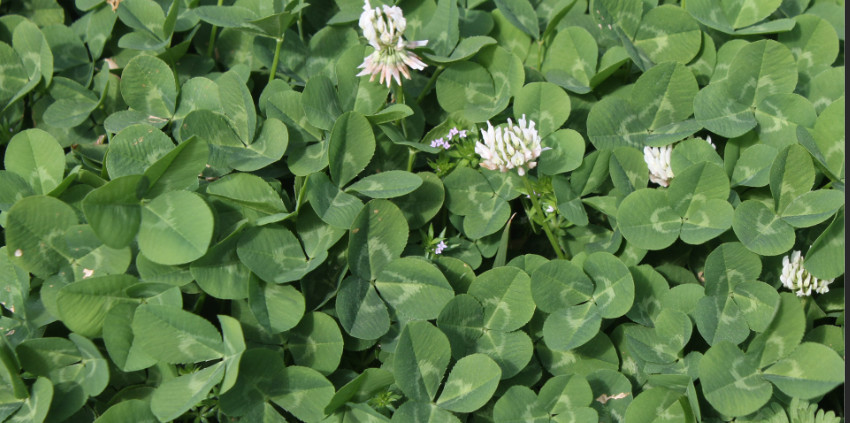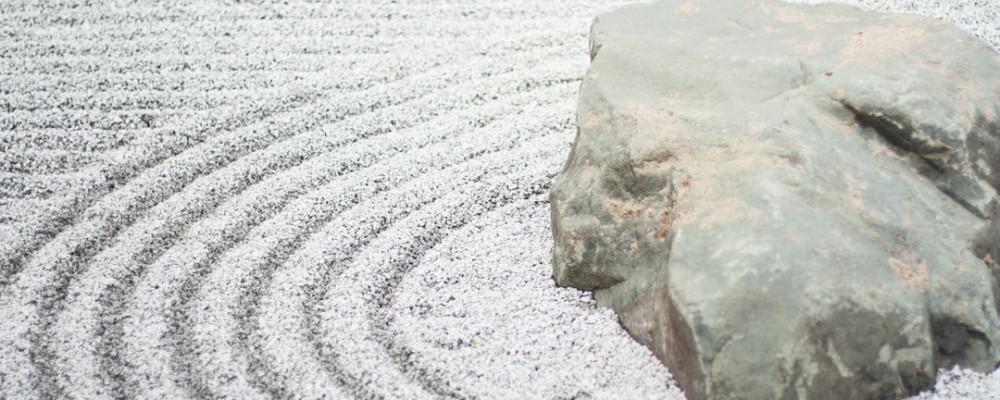
Why Do I Have Clover in My Lawn?
Usually, clover thrives in lawns that are overwatered, overfed, and mowed too short. It belongs to the family of legumes and creates its own nitrogen, allowing it to flourish on nutrient-poor soil. While some people want a weed-free grass lawn, others prefer clover because it offers insects nectar and natural soil fertilization.
Beautiful lawns are doomed by tenacious weeds. Clover, also known as Trifolium repens, is useful despite its obstinacy. When it breaks down, it releases nitrogen into the soil, which promotes the development of grass. In fact, micro-clover is a desirable addition to a lawn in some grass mixtures.
But, a lot of homeowners just don’t like how those little white clover blooms break up their lush green lawns. Mowing it down just provides a temporary solution because Clover always comes back quickly. So I can help if you want to get this crap out of your yard.
What is an Effective Way of Getting Rid of Clover?
You can use natural methods to get rid of clover on your lawn, such as hand-pulling it out, denying it oxygen and sunshine, putting a vinegar solution on it, or using an organic herbicide.
Nitrogen Rich fertilizer.
In general, a fertilized lawn deters the growth of all weeds, but ensuring enough nitrogen levels will offer you a distinct advantage versus clover. As clover can create its own nitrogen, it has an advantage over a lawn that is deficient in nitrogen, which enables this weed to flourish. Invest in a weed-and-feed formula high in nitrogen. If you only have a tiny quantity of clover, organic fertilizers might work, but if your lawn is overrun, use a regular fertilizer that is not slow-release
Corn gluten will kill it.
Corn gluten meal, which is obtainable online and at your neighborhood garden center, can prevent clover development without endangering surrounding plants. It causes the soil to emit organic dipeptides that dry up clover seeds and make it more challenging for them to sprout. For every 1,000 square feet of lawn, spread 20 pounds of corn gluten meal, give it plenty of water, and let it air dry.
Pluck it Out by Hand.
Clover can be manually removed from small areas if you catch it early enough before it blooms and spreads. You should pluck clover as soon as possible since it spreads by seed and creeping stems with rooted roots that grow along the ground. Make sure to loosen the soil before plucking out the clover to break up any overlooked roots. You may want to do this and then zap it with “corn gluten meal” or “Vinegar and soap” being careful not to get it on the grass.
Organic Weed Killer.
Those who’d rather avoid using chemical herbicides may want to check out an organic weed killer like “Captain Jacks Deadweed Brew”

Bonide Captain Jack’s Deadweed Brew, 128 oz Concentrate for all organic Home Gardening.

$107.23
NON-SELECTIVE WEED CONTROL – For use on non-selective herbaceous broadleaf and grassy weeds.
FAST ACTING WEED KILLER – Our weed-killing formula can provide results in just hours!
VARIETY OF USES – It works in temperatures as low as 40 degrees Fahrenheit.
ORGANIC GARDENING – Approved for organic gardening.
EASY TO APPLY – The product mixes with water and should be applied as a spray using a standard hand-held or backpack sprayer.
Use this non-toxic, odorless, all-natural selective weed killer. It is safe to use around animals, crops, and waterbodies. It won’t hurt healthy grass, but it weakens and destroys clover.
Spray it immediately on undesired weeds including dandelion, ground ivy, lambquaters, and yellow mustard as well as clover. Poison ivy, sumac, buckthorn, bettersweet, ragweed, and other noxious and invasive species may also be susceptible to its effects.
When Should I Treat My Lawn for Clover?
The best time to apply clover killer is in the early spring. Spraying the clover shouldn’t be done heavily enough to cause runoff. Remember that you might require several applications, especially considering how persistent a clover weed is. The clover may not be eliminated by the spray application for six weeks.
Clover weeds require extra effort and perseverance to get rid of it, so be patient.
What is the Best Fertilizer for my Lawn?
We are looking for a nitrogen-rich fertilizer that will kill off the clover while increasing the nitrogen levels in your soil.
Boag full-power liquid will do the trick for you.

$50.99
BIOLOGICALLY DERIVED HUMIC ACID FOR SAFE GARDENING – Approved for organic production by OMRI (US and Canada) and CDFA OIM.
IMPROVED GROWTH AND HIGHER YIELDS – It accelerates the uptake of nutrients and fertilizer. This results in vigorous roots and shoots growth of all plants.
IDEAL FOR HYDROPONICS, SOIL, AND SOILLESS MEDIA – Highly effective in all types of growing mediums and methods, all season long, for hobbyists and commercial growers. It is clean and does not clog lines. It does not affect the PH, PPM, or EC of the media.
QUALITY ASSURED BY TESTING EVERY BATCH – To ensure top performance, every production run of Ful-Power is tested with HPTA approved test method. Made in the USA.
EASY TO USE FOR ALL PLANTS – Use on hemp, turf grasses, tomato plants, vegetables, etc.
Does Overseeding get rid of Clover?
In addition to aeration and overseeding, the best defense against all weeds, including clover, is a healthy, dense turf. Little pockets of soil are removed when a lawn is aerated, which helps to loosen the soil all around.
More Tips.
Although some people prefer the sight and feel of short turf, keeping your lawn a little longer will help control the clover problem. With shallow roots, clover grows close to the earth. Hence, if you lift your mower deck and maintain grass that is three inches or taller, the taller grass will effectively limit the clover’s access to sunlight. This assists in limiting the growth and spread of clover on your grass.
Another way to prevent clover is to maintain the correct moisture level. Too-wet grass is the ideal environment for the development of weed seeds, but stressed-out, thirsty grass also attracts weeds.
Xeriscaping.
What you may want to consider though is a thing called Xeriscaping. What is xeriscaping I hear you ask?
Xeriscaping means landscape in a style that requires little or no irrigation. It is the practice of designing landscapes to reduce or eliminate the need for irrigation by using drought-tolerant plants, rocks, mulch, and efficient irrigation methods. Xeriscaping is popular in dry regions of the western United States where water is a limited and expensive resource. Using clover instead of water wasteful lawns is a huge step in wastewater management. Sometimes it is more efficient and looks just as good to use what you and others may consider weeds at the moment.
Author
Stephen





